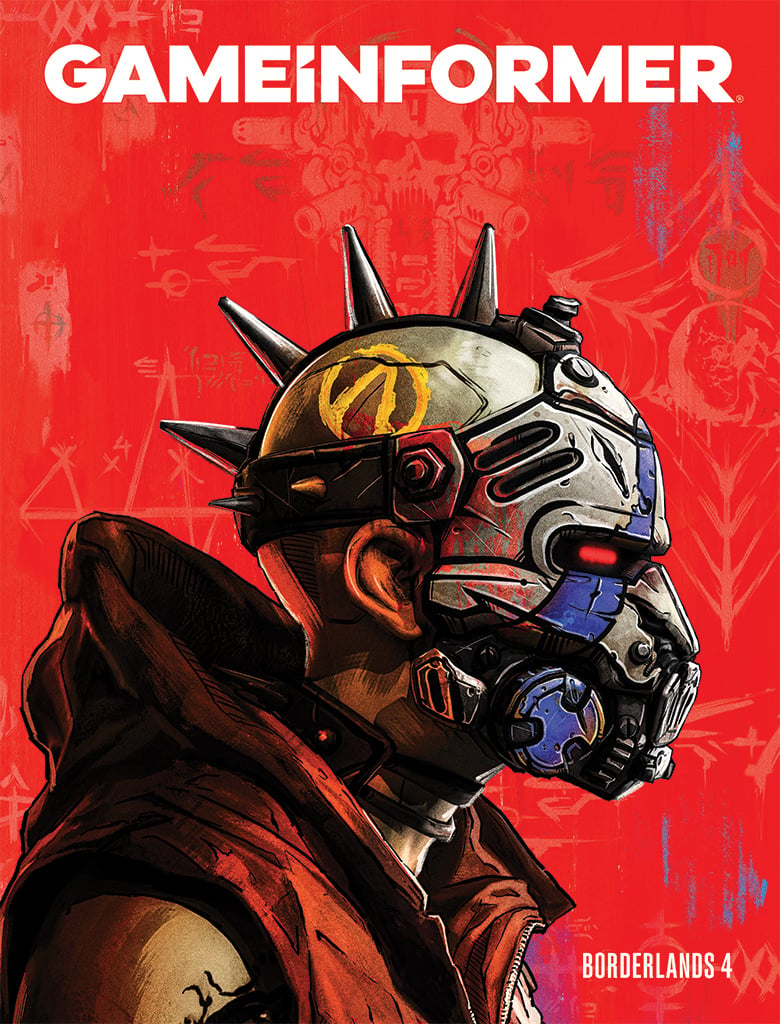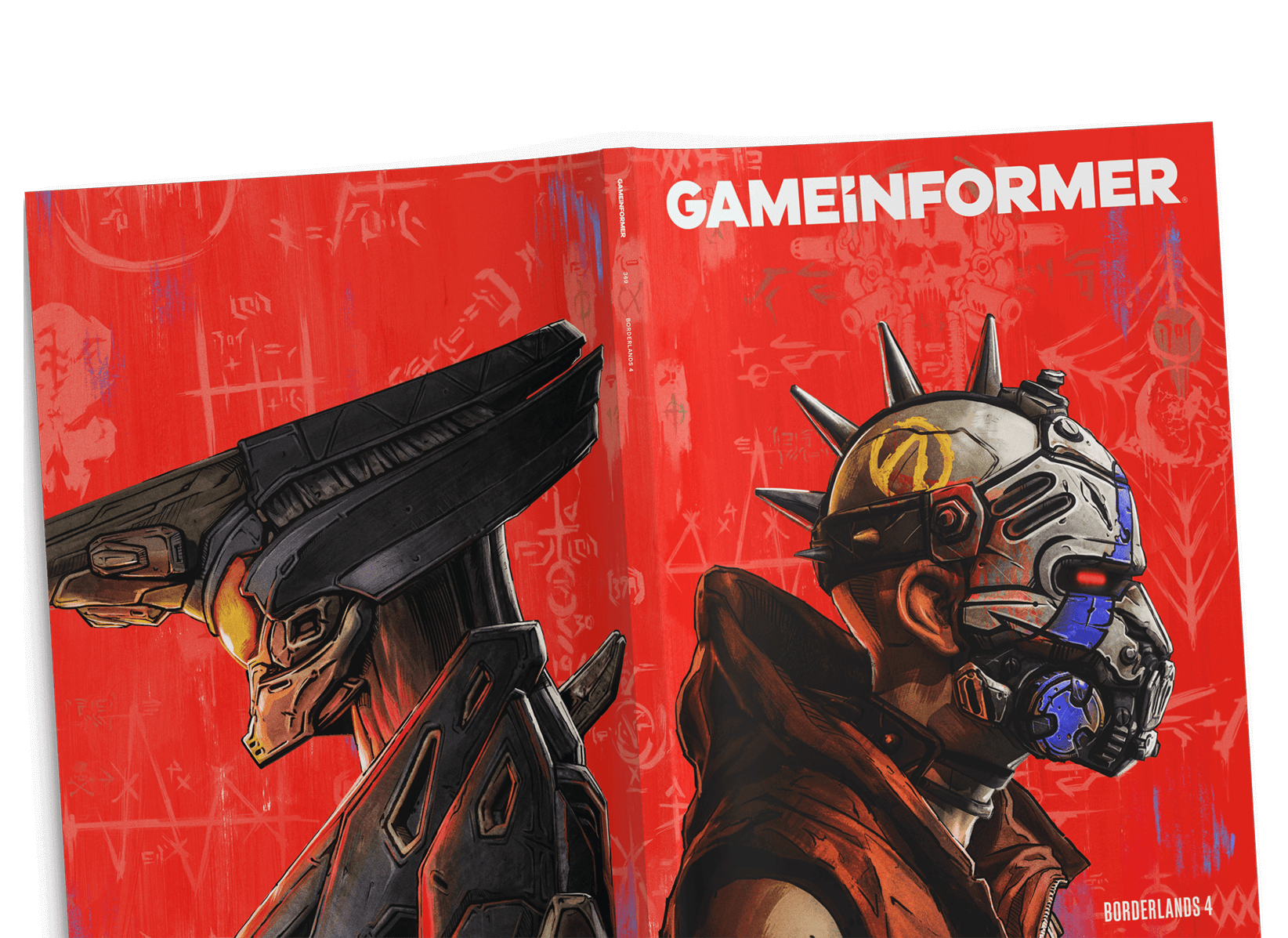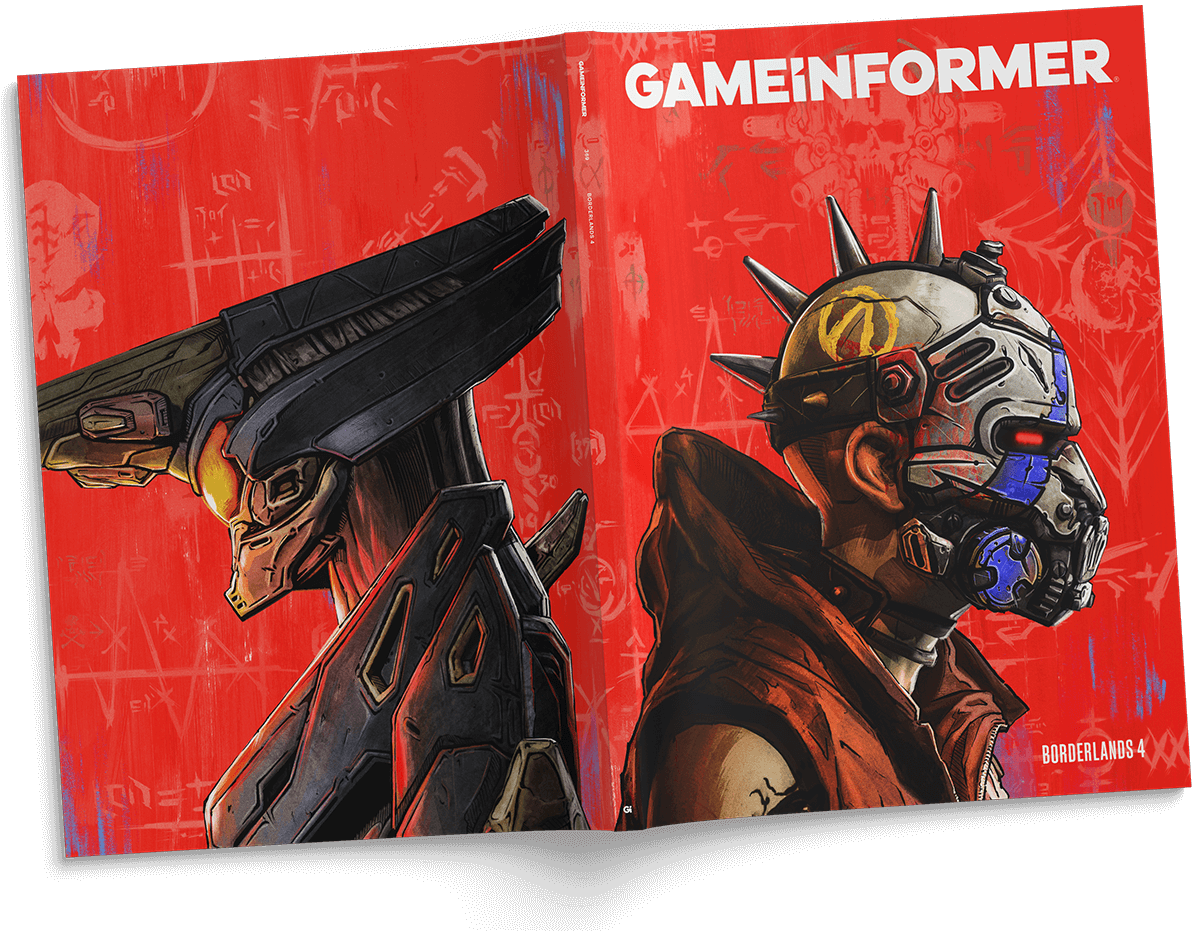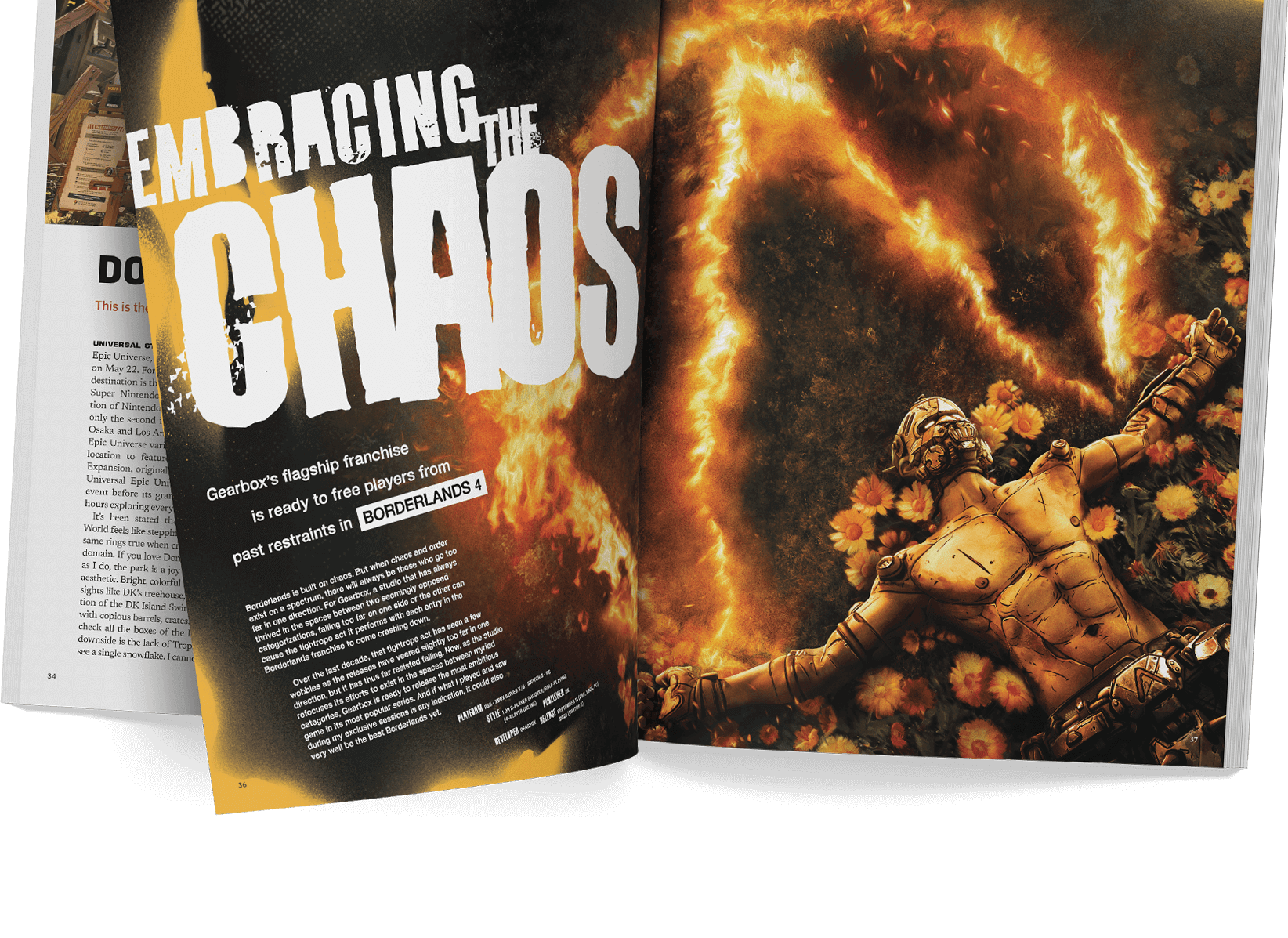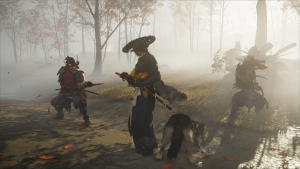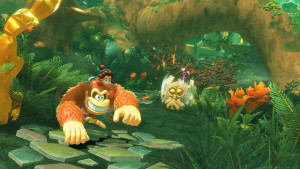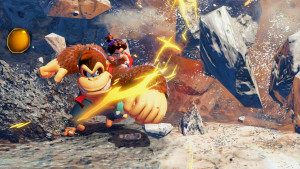Subscribe now to get the Vampire: The Masquerade – Bloodlines 2 issue and a D&D poster pack-in!
Following Furor Over Alleged Mobile-Only Future, Konami Says It Will Still Develop For Consoles

Two weeks ago, an interview with Konami Digital Entertainment president Hideki Hayakawa was published by Japanese outlet Nikkei. During the conversation, Hayakawa was quoted as saying that the company's focus moving forward would be on mobile gaming. Konami has now addressed those statements.
Konami provided us with its own translation of the interview, providing context around the statements dealing with mobile. Judging by the cover letter from Jay Boor, Konami director of public relations, it's clear that the company doesn't want Metal Gear and Silent Hill fans to panic.
"Konami will continue to embrace the challenge of creating entertainment content via different platforms; across not only mobile platforms, but for home consoles, arcade units, and cards, to meet the changing needs of the times," Boor writes. He also reaffirms what we've heard from Konami before: Metal Gear and Silent Hill will live on. The publisher just isn't ready to talk about how yet (though we know that the Guillermo del Toro-led Silent Hills is canceled).
Boor also reiterates that the developers behind Metal Gear Solid V: The Phantom Pain (including Hideo Kojima, mentioned by name) are hard at work finishing the game. No mention was made of rumors related to the working relationship between the Metal Gear creator and his publisher.
In the translated article, Hayakawa's comment about mobile development is made clearer. In fact, the translation provided by Konami suggests that his vision for the company is to develop in multiple categories.
I believe this is precisely where our strength as a company lies. Our power to create groundbreaking IPs, and our power to refine them into progressively better products, have been the driving force behind our business. However, whereas platforms to date were very limited, we now need to split our approaches between console, arcade, card, and mobile games to best suit the needs of the customer. Recently we often hear the term “Mobile First,” and I want to specify that KONAMI’s idea of Mobile First is not at all to focus purely on mobile games. Our aim is to continue to build up a comprehensive portfolio of console, arcade, and card game titles for each IP while also making the best possible use of the mobile devices that accompany our customers in their daily life, thus expanding the limits of entertainment and appealing to more and more customers.
You can read the entire Nikkei article (reprinted with permission) on the following pages.
[Source: Nikkei]
Our Take
While this is certainly intended to assuage concerns over a suspected mobile-only future for Konami, the publisher still seems to be narrowing its console offerings. What I did find interesting in the full translation is Konami's plans to develop mobile games for specific markets within those markets.
That means you'll see mobile games for western audiences developed in North America and Europe rather than Japan. Hayakawa also acknowledges that Japan remains the core audience for its mobile endeavors, though the company will no doubt monitor the situation and adapt.
For core console gamers, this provides some solace. However, in won't be until Metal Gear, Silent Hill, and Castlevania find firm purchase in the coming years that people will rest easy.

Striving For an Organization that Continuously Evolves Through the Power to Create, to Refine, and to Deliver. What Are the Goals of KONAMI’s New Leader?
Originally published May 14, 2015 by Nikkei
Translation provided by Konami
Reprinted with permission
On April 1, 2015, Hideki Hayakawa assumed the position of Representative Director and President of Konami Digital Entertainment (below, KONAMI).
Mr. Hayakawa previously served as Executive Producer leading the mobile game "DRAGON COLLECTION" to major success. Since 2009, when social platforms operating in the domestic market made themselves open to external developers, social application providers (SAPs) dominated with popular casual games such as farming/store simulators. It was in that market environment that "DRAGON COLLECTION" found a new niche with its game design that combines the essential features of fantasy games and card battle games. The title has received a number of awards, including the "Special Award" in the Japan Game Awards 2011: Future Division, and the "Hall of Fame Special Award" in the GREE Platform Award 2014.
KONAMI is known for having established a strong presence in the console game sector, with titles such as the METAL GEAR, JIKKYOU POWERFUL PROYAKYU, and WORLD SOCCER Winning Eleven series (known overseas as Pro Evolution Soccer), as well as in the arcade game sector, with titles such as the BEMANI series and "ORECA BATTLE." The appointment of Mr. Hayakawa as President after his successes in the mobile game market suggests that KONAMI is about to undergo a major transformation. So what kind of changes does Mr. Hayakawa have in mind for KONAMI?
Shifting the Focus of Game Development from the Tangible to the Intangible
Nikkei: Mr. Hayakawa, how do you perceive the current game industry?
Hideki Hayakawa (below, Mr. Hayakawa): When I first engaged in the development of "DRAGON COLLECTION" in September 2010, I strongly felt that mobile devices would soon become the major game platforms, and that our business would depend on running an "operation-driven" model that would allow us to stay abreast of changing customer usage trends and swiftly evolve our games to suit them. This means that in terms of arcade, console, and card games as well, we need to shift away from selling only "tangible" products to also providing "intangible" additions.
Although KONAMI shifted strategy in this way several years ago, we found it difficult to fully adopt this approach, so we have been accelerating our efforts to catch up with the trend since I assumed the position of Vice President last July.
In enhancing our approach, we have started introducing additional monetization models to games such as JIKKYOU POWERFUL PROYAKYU and WORLD SOCCER Winning Eleven, allowing us to generate additional revenue from intangible additions rather than simply sell products once and move on.
In "JIKKYOU POWERFUL PROYAKYU 2013," which was released two years ago, we added an online feature to the popular "Success Mode," in which users train up custom players as they progress through a set scenario. Also, in addition to the initial scenario included with the game, extra scenarios have been made available over time free of charge, so that users can continue to enjoy the game and are incentivized to purchase in-game items to upgrade their players.
Similarly, in "WORLD SOCCER Winning Eleven 2015," which was released in November last year, we introduced the "myClub" mode where users train up custom players and coaches. This title also features the online payment system and operation-driven model, implemented through means such as holding tournaments.
Through these initiatives, we have found that even customers who bought packaged console games potentially have high motivation for game monetization. In mobile games, we constantly pursue KPI (key performance indicators) such as users’ continued usage rate and paid service usage rate, and we have built up a solid understanding of how to adjust our products to maximize these figures. Having put that knowledge to use, our customers also responded favorably, so we consider ourselves to be on the right track.
Since "DRAGON COLLECTION," we have conducted all our development and operation for our main titles in-house. Operating games requires techniques that cannot be picked up overnight, so the fact that we noticed the importance of this early on, and quickly began the challenging trial-and-error process of building up our organizational structure, is now paying dividends.
One result of these initiatives is "JIKKYOU POWERFUL PROYAKYU," which we released as a mobile game last December. By taking the abovementioned approach that we employed with the console title, and restructuring the game to make it a perfect fit for mobile gameplay, it has earned extremely high acclaim. I believe that this positive result comes of expertly combining the game system with a well thought-out monetization model, and the fact that the title is part of an IP (intellectual property) that we have carefully cultivated over the span of 20 years. This is the kind of customer-attracting IP, backed up by strong game design, that I want to actively introduce into the mobile game market.
Utilizing our Strengths to Innovate New Intellectual Properties
Now that not only mobile devices but also console platforms such as the PlayStation®4 and Xbox One feature network connection as standard, device connectivity has become a prerequisite in developing games. What are your thoughts on this?
Mr. Hayakawa: Until now, our organization has been structured in such a way that individual production studios would focus on particular genres, to carve out deeper niches once a certain type of game proved to be a hit. In a way, this was like a shopping avenue lined with individual stores, each working on improving only their own product value and range. The advantage of this style is that it gives each "store" increased recognition and attracts more customers.
Now, although it is true that luck may be involved in the success of some hit products, I believe all of our hits have been the product of revolutionary innovation. "Tokimeki Memorial," for example, featured chatting with attractive girls while the player relived the high school lifestyle, a significant departure from previous game design that went on to create the entire dating game genre. Equally, a distinctive cabinet design that stood out in arcades, coupled with the freedom for players to invent their own play style, made "DanceDanceRevolution" the founding example of music games that even entertain the spectators.
I believe this is precisely where our strength as a company lies. Our power to create groundbreaking IPs, and our power to refine them into progressively better products, have been the driving force behind our business. However, whereas platforms to date were very limited, we now need to split our approaches between console, arcade, card, and mobile games to best suit the needs of the customer. Recently we often hear the term “Mobile First,” and I want to specify that KONAMI’s idea of Mobile First is not at all to focus purely on mobile games. Our aim is to continue to build up a comprehensive portfolio of console, arcade, and card game titles for each IP while also making the best possible use of the mobile devices that accompany our customers in their daily life, thus expanding the limits of entertainment and appealing to more and more customers.
So if our business to date has operated like a string of individual stores, then this revised approach makes us a major department store. With all of our "stores" under one roof, come Valentine’s Day all stores display the same kind of banners and posters, and all enjoy better business as the customers pour in to buy gifts. As Christmas approaches, cakes and toys come to the fore. In the same way, I want us to focus on what the customer usage trends for KONAMI games are, and be able to tell precisely what customers want from moment to moment, such as which parts they are most interested in, whether they are playing multiple titles, and which platform they spend the most time playing on. With that clarity of vision we can then provide products and services tailor-made to meet those needs. Our domestic and international sales divisions have a great deal of promotional knowledge which they have built-up in their various business regions. I believe that utilizing this power to deliver will become increasingly important as time goes on.
Aiming Toward "Local Productions for Local Consumption" in our Overseas Operations
The overseas market is obviously vital in expanding the scale of a business. In addition to popular console titles such as METAL GEAR SOLID, Pro Evolution Soccer, and Castlevania, could you comment on how KONAMI is stepping up its approach to releasing mobile games overseas?
Allow me to begin by mentioning some examples of our console games. The new title "Pro Evolution Soccer 2015" that we released in November last year made a great leap forward in visual fidelity, with everything from the players’ expressions and uniforms to the supporters and stadiums rendered more realistically than ever before. We also made further efforts to refine the control scheme that the series was already famous for, and made it the first title in the series to be released on the PlayStation®4. "Pro Evolution Soccer 2015" is already performing very favorably, including taking the "Best Sports Game Award" at gamescom 2014, Europe’s premier game exposition, which was held in Cologne, Germany in August, 2014.
Additionally, "METAL GEAR SOLID V: THE PHANTOM PAIN," the main game that follows on from prologue title "METAL GEAR SOLID V: GROUND ZEROES" (released in March 2014), will be released on multiple platforms including PlayStation®4 and Xbox One on September 1, 2015 in North America, Latin America, and Europe, and September 2 in Japan and Asia. "MGSV:TPP" is the first title in the series to be set in an open world, for an extremely liberated stealth game experience that will enable players to invent all manner of unique tactics as they play.
For mobile games as well, we are always considering what types of titles to release in overseas markets such as the U.S. and Europe, but actually Japan is our primary market for mobile content. Although some view the Japan market as having already reached a plateau, sales across all markets show that Japan is still ahead of other regions including China and the U.S., and that is with market saturation for smartphones at around only 50%, which is still relatively low among developed nations. In addition, the Japanese market is populated with consumers who are extremely particular and discerning, and it is this environment that has helped us polish game design quality to such a high level.
The ideal approach for overseas mobile game deployment is to execute the game entirely, from game design to development and operation, within the target region. In other words, having the game locally produced for the local market. Being situated in Japan gives us a working knowledge of Asian cultures, but to be honest difficulties arise when trying to interpret western cultures. Our mobile titles such as "Star Wars: Force Collection" and "PES COLLECTION" are just one step short of being locally produced for the local market. These titles are developed in Japan, but are jointly operated with the localization and culturalization teams at our overseas branches, and this approach has proven to be one method for success.
It would be quite the challenge to suddenly have our local staff create a brand new title from scratch, so I believe that it would be best to first have our overseas branches research and consider how best to localize and culturalize titles that have been developed in Japan and, if their administration and operation of the titles are successful, the next step would be to leave game development in their hands.
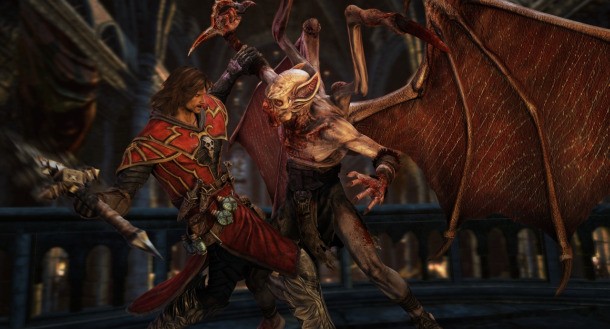
Implementing an Organizational Structure that Flexibly Leverages Devices and IPs
In an interview last year, your predecessor Mr. Tanaka stated that, "As device specs and performance, now being led by smartphones, continue to increase, players will demand a gameplay experience different from the typical browser-type games. That in turn will demand the technology and know-how to develop those games. Although our plans were to gradually shift toward native app development, we lacked speed when it came to training our employees to develop the necessary skill sets." How do you plan on overcoming that challenge?
As with the department store example I mentioned earlier, our company’s strong points are the power to create, to refine, and to deliver. The organizational structure that can best draw on all three of these strengths is the centralized production division system that we introduced on March 16th. The focus of this reform has been to enable us to instantly grasp the shifting needs of our customers amidst the quick-changing trends and technologies of the game business, and successfully leverage the right IPs on the right devices.
With the new structure we will also be making clear distinctions between management and creative roles. Until now, in addition to game development duties, our creators were handling a wide range of responsibilities including managerial roles. This can be a helpful approach when a studio concentrates on progressively specializing in a specific style of product, but we have found that a sudden market shift can render that specialization invalid and lave the studio unable to keep up. We faced difficulties in taking advantage of market shifts in areas such as licensing, with expansion of IPs outside of the games themselves, and also in leveraging IPs between different devices such as from consoles to the mobile platform. Based on these lessons, we have changed our approach to instead have managerial staff thoroughly focus on strategy and how their individual skills can be best applied, with that strategy then being executed together with the creative staff. That is the concept behind our new structure.
On the technical front, we are conducting widespread technical training, such as having our mainly 2D artists start developing skills with 3D tools and our server-side programmers learn about client-side development. However, training and workshops only serve as a first step. It would be a very tall order to have a mobile game creator start development on a console game straight away. Therefore, our approach is to first have the creators focus on and use the skills they excel at and then further expand those skills gradually as they work on development. When introducing a new method into game development, you are bound to encounter something that is not your forte. We have had past experiences where results did not pan out as planned when we delved into challenges for which we did not have the proper business knowhow or development/technical skills. While I would not go so far as to say "each man to his trade," I do aim to have our creators positioned effectively in projects where they can best employ their strengths.
Evolve to Survive: The Key to an Everlasting Business
In recent years, there have been many hit mobile games such as Gung Ho’s "Puzzle & Dragons" that bring brand new concepts to the market. "DRAGON COLLECTION" was one such title that kicked off a new genre. Do you have a tactic in mind for creating the next "DRAGON COLLECTION"?
Turning a new IP into a hit is no easy task, but as I touched on earlier, our company has a number of successful IPs and each of those IPs was invented by our creators. One of the reasons for clearly defining employee roles is to allow our creators to dedicate their undivided efforts toward the development of the game, or in other words, we want to create an environment where our creators do not have to concern themselves with anything but development and creativity. I think the cultivation of that environment will act as fertile soil for the creation of new IPs, and before long one of our creators will, out of the blue, develop the next big hit. Our company excels in this area, and it has played an important role in our remaining in this business for over 40 years, so it is something that I definitely mean to hold true to.
I often use the term "evolve to survive," which means those who continue to adapt and evolve are the ones that live on. I believe that digital entertainment is a malleable business that can freely and continually adapt its structure to best suit the changing times. In other words, dedicating ourselves to constant evolution is how we ensure our survival.
When it comes to creating new game ideas, we cannot base them only on the here and now. We have to think ahead and read into what may come. For example, what if smartphones develop the technology to be operated not with our fingers, but with our eyes through an eye-tracking system? We have to think of such outside-the-box ideas and ask ourselves what kind of games we would provide under those circumstances. Unless we stay aware of and think ahead to such evolutions, we will not be ready to execute strategy using the optimal technology when the time comes. Therefore, I believe it is vital for us to further hone and polish the skills we have learned from game development across a diverse range of devices.
The Approach for This Period and Beyond
Lastly, what do you foresee for the game market in 2015?
I believe that the overall game market will continue to grow, with mobile devices as a driving force. I believe that individual IPs will be made available across various devices, and so eventually it will become meaningless to categorize the market. The role of the mobile platform will be to connect people with their games across various devices, and so the methods and presentation employed in distributing information on mobile devices will be critical.
Shifting the discussion to only mobile games; the market has developed to the point that users are now extremely discerning about product quality and game design. Given that new titles come out almost every day and success depends upon having a recognizable IP backed with solid technology and a sizeable marketing budget, this is now a business that only a limited number of companies can engage in. Despite this challenging environment, if our company can continue to fully exert its power to create, to refine, and to deliver, I believe that we have the opportunity to grow even further. Also, KONAMI’s history is a path that is paved with innovations. Our devotion to pushing ourselves ever further in order to offer players new game experiences has repeatedly manifested itself in IPs that go on to gain extraordinary support from our many fans. And now, we are actively working toward the new innovations that will pave the path ahead. Look forward to an exciting future with KONAMI.
